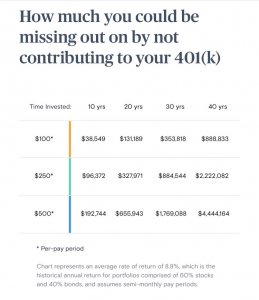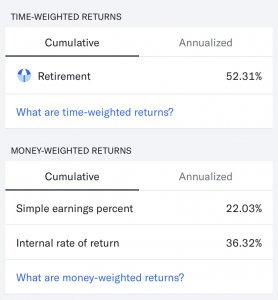- Mar 14, 2006
- 17,697
- 2,714
Personally I wouldn't put money in a roth , i'd go traditional then do a conversion to roth ira when my income is much lower in the future.
Heres a graph from the article showing the difference in contributing to a traditional vs roth.
I suggest people check out the entire article though.
[h1]Traditional IRA vs. Roth IRA [/h1]
[h1]So What’s the Big Deal?[/h1]
An example will help clarify how this works and will highlight how much money this could save you over the long run.
Imagine two 30-year-olds who hope to retire by the age of 40. To make things simple, assume they each start with nothing, make $60,000 a year, and can happily live off of $18,000 per year.
Investor A decides to max out his Roth IRA between now and when he retires at 40. Investor B instead decides to max out his Traditional IRA and then slowly convert it to a Roth IRA after he turns 40. Both invest all additional income into taxable accounts.
The following graph shows the value of the accounts of these two investors.

Investor A is represented by the light green lines and Investor B is represented by the dark green lines. The solid lines represent the investors’ normal taxable accounts, the dashed lines represent the investors’ Roth IRA accounts, and the dotted line represents Investor B’s Traditional IRA account.
As you can see, at age 40, both investors stop contributing to their accounts and begin withdrawing $18,000 per year from the taxable accounts. Investor B also begins converting his Traditional IRA into a Roth IRA at this time. Thanks to the fact that he is able to live on a reasonable income and has time to slowly convert the Traditional IRA into the Roth IRA, he is not taxed on the conversion and therefore ends up having exactly the same amount of money in his Roth IRA as Investor A does when they both reach standard retirement age.
What you’ll notice though is that Investor B actually has quite a bit more in his taxable account. Since he was able to invest pre-tax money in his IRA when he was working, he had more money to invest in the taxable account during his 30s and as a result, will end up with over $100,000 more than Investor A when he reaches retirement age!
It’s pretty incredible that a simple choice between two good options could result in a six-figure difference in retirement savings!
Repped, I have a Roth right now but will look at this article to learn more.
 .. If I'm cheap I'll do it tho lol. Long term goal is to have 20k by this time next year
.. If I'm cheap I'll do it tho lol. Long term goal is to have 20k by this time next year 















